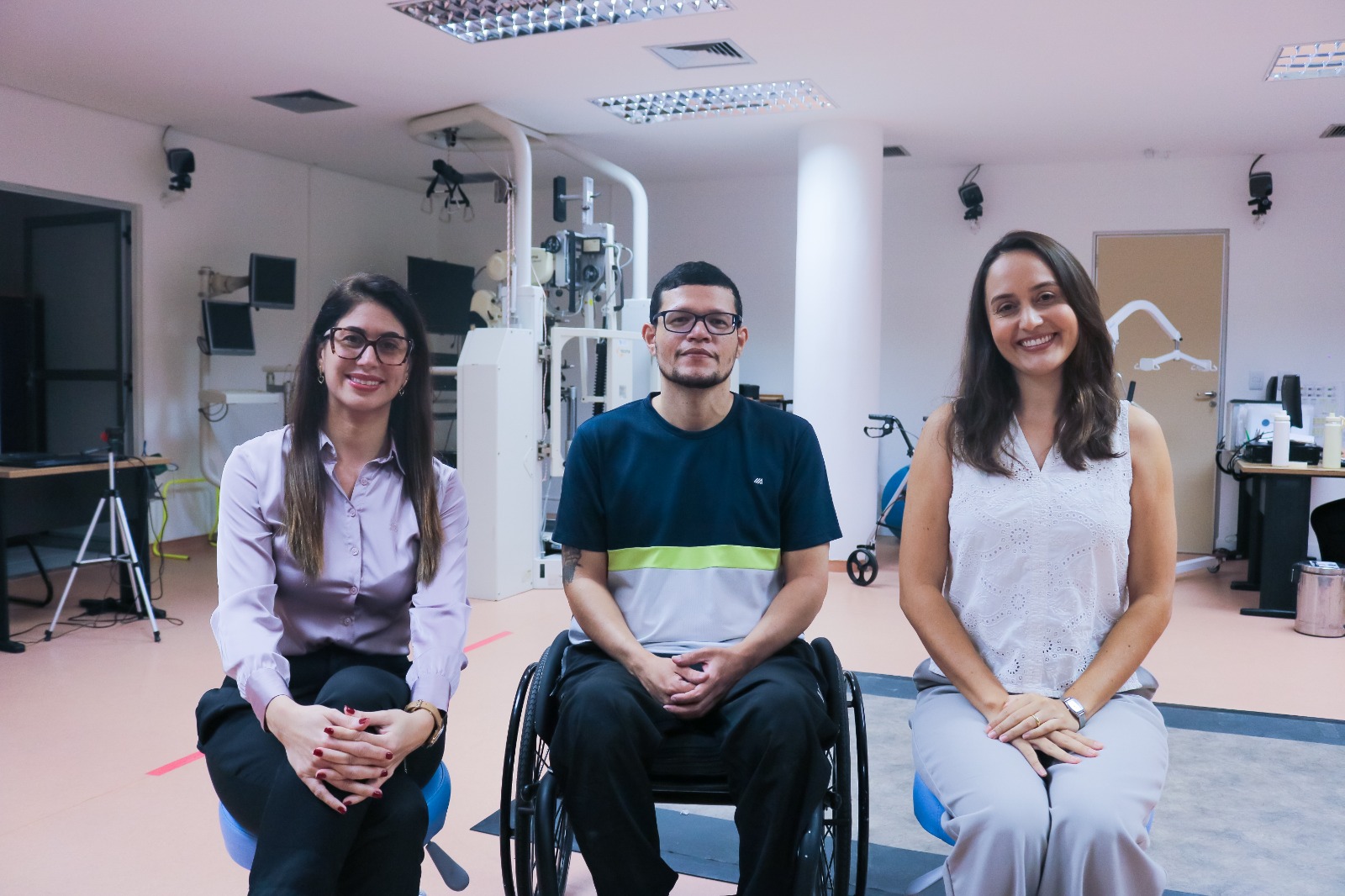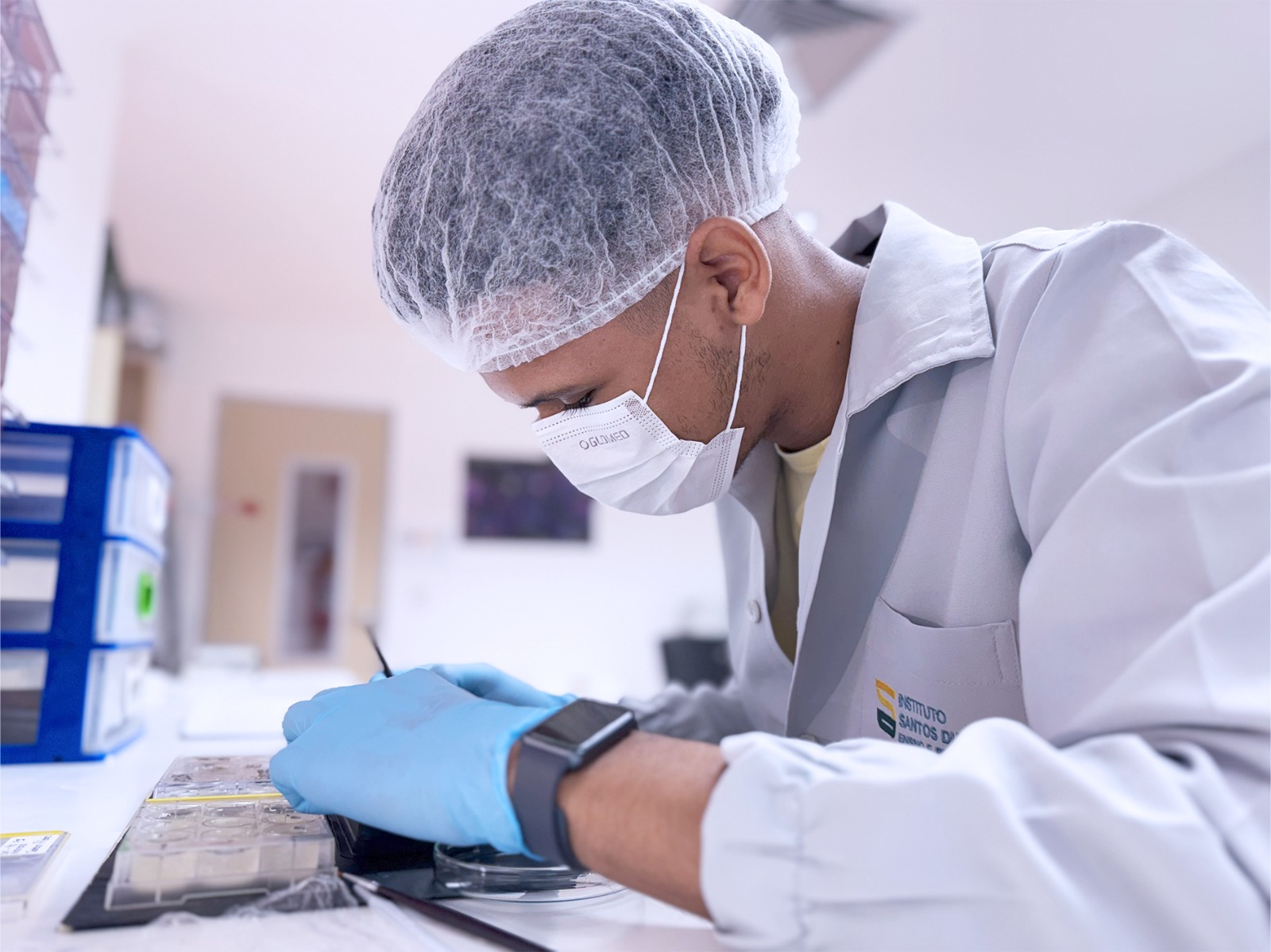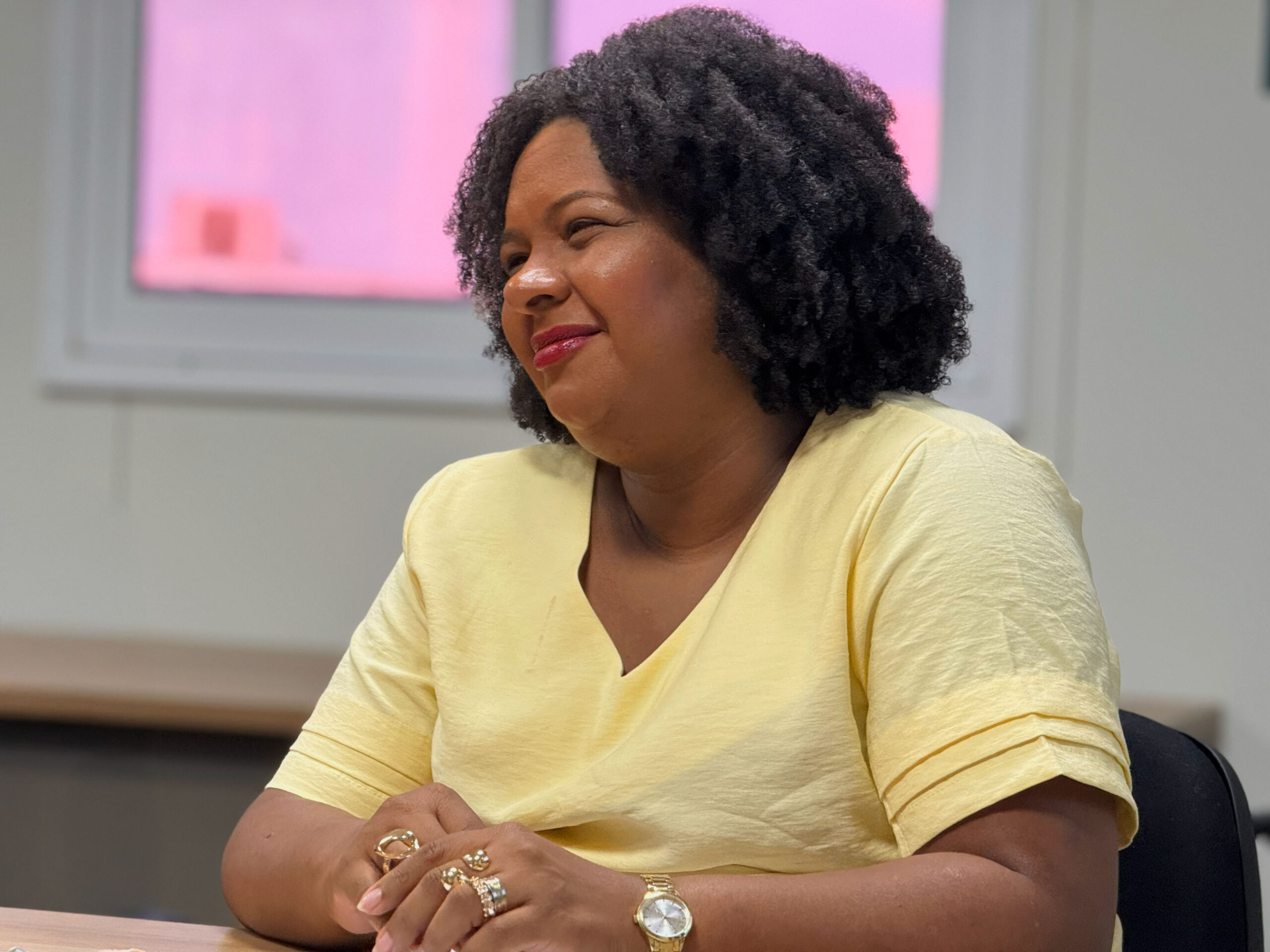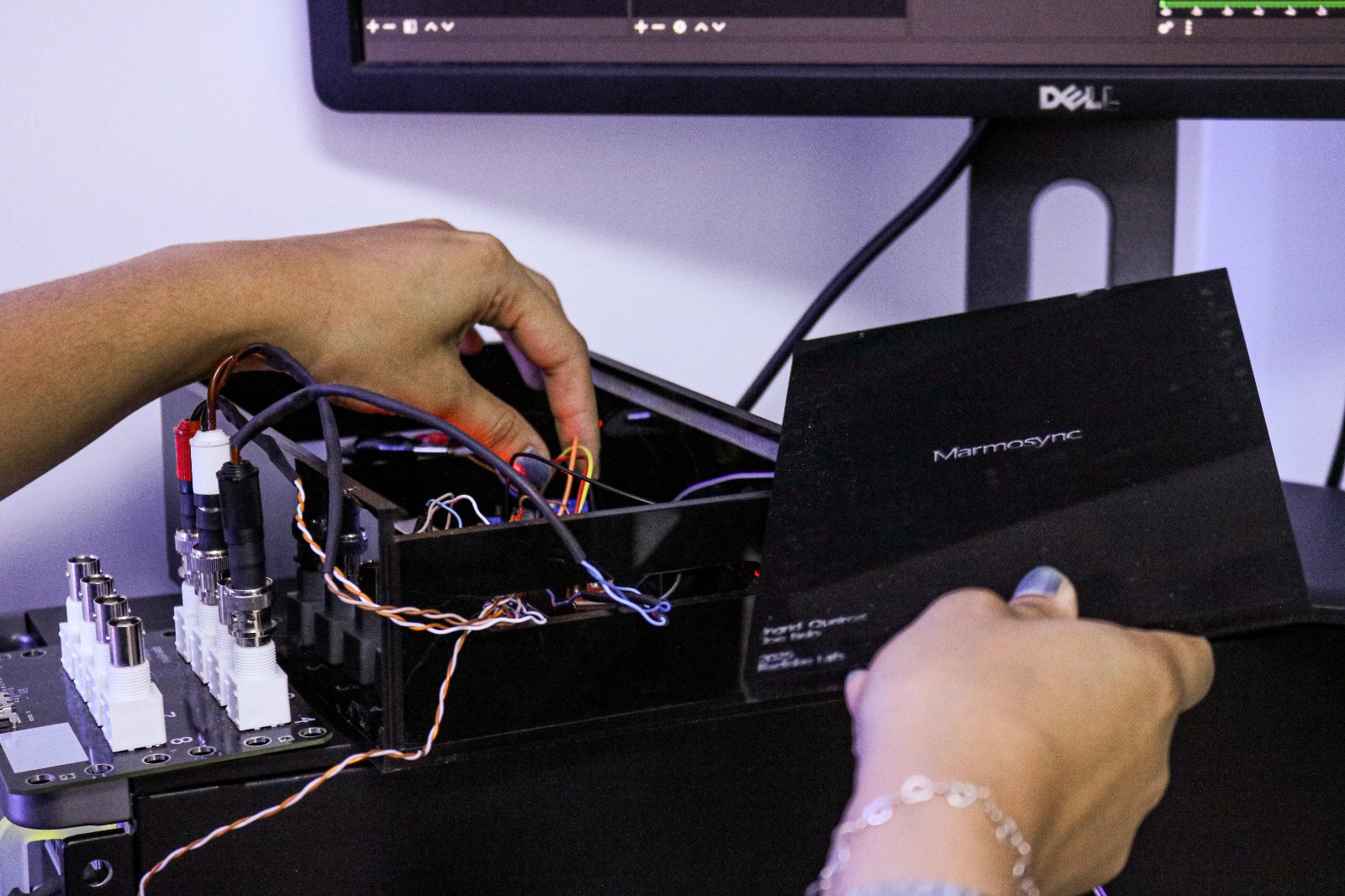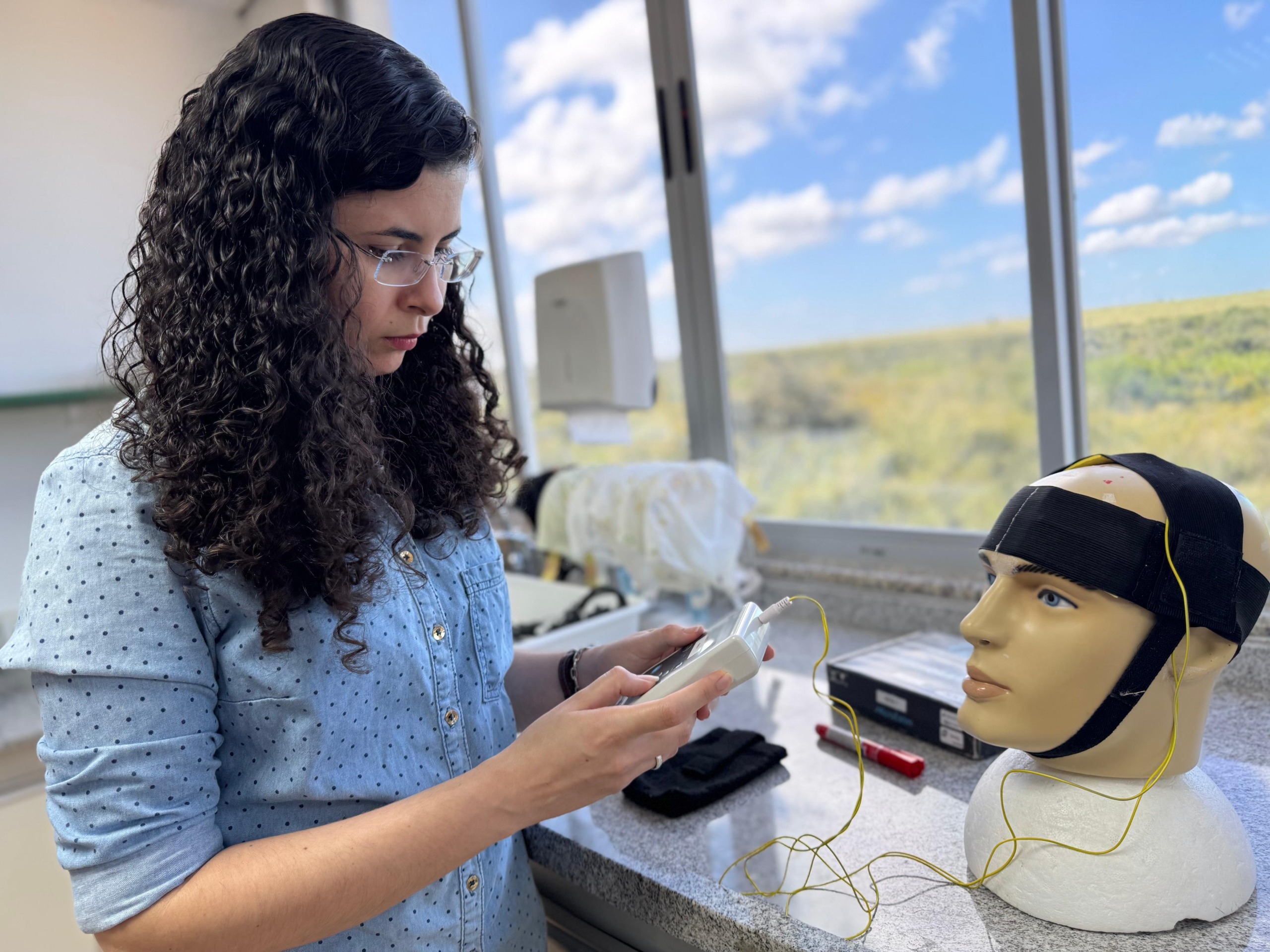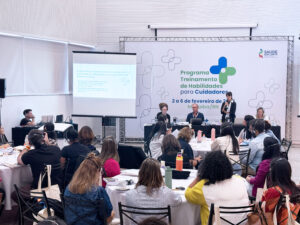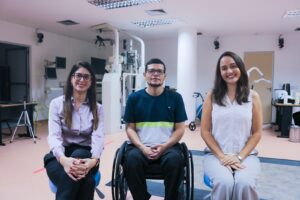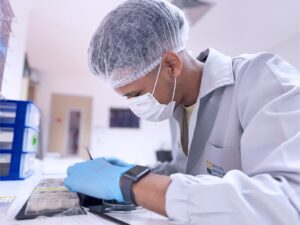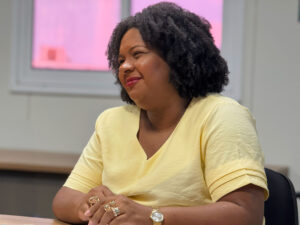
Renata Moura
Journalist
J. was around 20 years old when he thought he was going to die in front of his children.
There were five years of terror and aggression at the hands and words of his then partner.
“A violence that attacks you even as a mother, that attacks you in essence”, she says. “A lot of people think they won’t be victims. But it could be. I already left the house in a van with my young children, to escape. To not die. So support, try to talk and at no point judge anyone who is going through this.”
The statement was one of those shared this Thursday morning (27) at the Anita Garibaldi Health Education and Research Center, at the Santos Dumont Institute (ISD), in an action carried out by preceptors and residents of psychology and social services at Anita.
The action is part of the campaign #AgustLilac, what alerts the population about the importance of preventing and combating violence against women.
Violence
Women and men who were in the 'waiting room' for care at Anita's clinics were invited to participate in the debate and share feelings and experiences lived or witnessed involving different types of violence.
The action was carried out under the tents that became a waiting room open to users during the pandemic, as a prevention against the new coronavirus.
A clothesline with excerpts from reports and explanations on the topic was displayed at the site and caught the attention of those watching.
Family, physical, institutional, moral, psychological and domestic violence were evident.
There, hanging in the open air, the violence that is a daily occurrence for many women – and that can go unnoticed – were exemplified and explained one by one, amidst stories from those who listened and cried when remembering that they were also victims.
“Often the husband doesn’t let his wife work and she thinks: what am I going to do without him?”, observed one of the participants. J. concluded, based on the terror he suffered and from which he says he is free:
“We don’t live like this because we want to. But when we rise from suffering we rise strong. From the ashes, like a phoenix.”
“But we need help.”

Cycle of violence
Knowing the cycle of violence to identify whether you are part of it or to provide support to those in need is fundamental, explained ISD resident social workers Anna Beatriz Valentim, Ciria Germano and Juciara Souza.
The cycle of violence, they explain, has three main phases. The first is called “increased tension”, which is when the aggressor becomes irritated by simple things at home.
“The food that isn’t cooked, the house that isn’t tidy”, everything becomes a reason for fighting. At this stage it is also common for women to be humiliated.
“He talks about her appearance, undermines her self-esteem, removes her from the social cycle, from friends, from family.” The second phase is the attack – the act of violence that takes shape. There may be kicks, pushes, slaps, but not only that. Attacks happen through different means and do not always affect just the skin. They do not always leave evident marks in the eyes of those who pass by or live.
“How do we show that pain in the body also permeates the soul?” asks resident psychologist Giovanni Sampaio. “The pain that is sometimes seen much more in the body, in the purple mark that remains, is also in the mind, in words, in swearing, and it is important to be taken care of”.
The third phase of the cycle is the so-called “honeymoon”, in which the man promises that he will change, that he will never do that again. He swears love. And everything starts again.

Alexandra Lima, social worker and one of the Institute's preceptors in charge of the ISD project Making Rights, which serves children, adolescents, women and trans women who are victims of sexual violence, also draws attention to this type of violence, which manifests itself not only when a woman is forced into a sexual relationship based on physical violence or threats. Preventing a woman from taking contraceptives, determining when she will have a child or not are among the many aspects it can take on.
The importance of welcoming and supporting victims is enormous, says Alexandra. It is also necessary to know that each woman will have her own time to act.
No matter what type of violence she suffers, it makes a difference to say, Alexandra notes, “When you’re ready, I’m here to help.”
See the infographic below for violence figures and (on the second page) how to report it:
*Participated in planning and conducting the activity at ISD:
Alane Silveira da Silva – Resident Psychologist;
Ana Patrícia Santos Dias – Resident Psychologist;
Anna Beatriz Valentim de Souza – Resident Social Worker;
Arilene Lisboa Araújo – Resident Social Assistant;
Camila Rodrigues Bezerra Madruga – Resident Psychologist;
Ciria Dayanny Germano Meira – Resident Social Worker;
Giovanni Sampaio Queiroz – Resident Psychologist;
Juciara Gomes de Matos Souza – Resident Social Worker.
Reference preceptors:
Alexandra Silva de Lima – Social Worker;
Carla Glenda Souza da Silva – Psychologist
Text: Renata Moura / Journalist / Ascom – ISD
Photos: Renata Moura / Ascom – ISD
Communication Office
comunicacao@isd.org.br
(84) 99416-1880
Santos Dumont Institute (ISD)
It is a Social Organization linked to the Ministry of Education (MEC) and includes the Edmond and Lily Safra International Institute of Neurosciences and the Anita Garibaldi Health Education and Research Center, both in Macaíba. ISD's mission is to promote education for life, forming citizens through integrated teaching, research and extension actions, in addition to contributing to a fairer and more humane transformation of Brazilian social reality.





